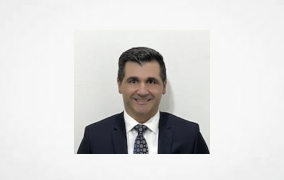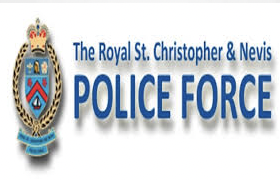Medicinal Cannabis: Legal Consequences of Operating a Vehicle
Author: Frank Pantelis
Background
In New South Wales (NSW), drivers using medicinal cannabis under medical supervision and found with small quantities of delta-9-tetrahydrocannabinol (THC) in their system can face substantial financial penalties and loss of licence. I believe that the current legal framework fails to account for the legitimate medical needs of patients and creates unnecessary barriers to accessing treatment.
The regulation of activities related to medicinal cannabis in Australia is governed by both federal (Commonwealth) laws and individual state and territory laws. Australia is a signatory to the Single Convention on Narcotic Drugs, which aims to restrict the possession, use, trade, distribution, import, export, manufacture and production of drugs for medical and scientific purposes, as well as to combat drug trafficking and abuse through international cooperation.
In October 2016, the Commonwealth enacted amendments to the Narcotic Drugs Act 1967 (Cth) to implement a national licensing and permit regime for the cultivation, production and manufacture of medicinal cannabis and medicinal cannabis products while ensuring Australia fulfills its obligations under the Single Convention on Narcotic Drugs of 1961.
In November 2016, the reclassification of medicinal cannabis established it as a legally permissible treatment option in Australia, allowing healthcare practitioners to prescribe it through the Therapeutic Goods Administration’s Special Access Scheme and Authorised Prescriber (AP) pathways.
Regulatory framework in NSW
The legal landscape surrounding the use of cannabis, particularly for medicinal purposes, has become increasingly complex, especially in jurisdictions like NSW. Under the Road Transport Act 2013 (NSW) (RT Act), the presence of THC in an individual’s system while operating a vehicle, occupying the driver’s seat and attempting to start the vehicle, or supervising a learner driver is categorised as a strict liability offence. This means that individuals can be penalised for having THC in their system regardless of whether they have a legitimate medical reason for its use, such as a prescription for medicinal cannabis. This legal framework raises significant concerns, particularly for patients who rely on cannabis to manage chronic health conditions.
In NSW, THC is defined as a “prescribed illicit drug” under section 4 of the RT Act, alongside other substances including methylamphetamine (commonly referred to as speed), 3,4-methylenedioxymethylamphetamine (ecstasy) and cocaine. The RT Act, specifically section 111, specifies that it is an offence for an individual to occupy the driver’s seat and attempt to start the vehicle or supervise a learner driver if a “prescribed illicit drug” is found in their oral fluid, blood or urine. It is important to note that THC can remain detectable in urine for several days after the last use. Approximately 80 to 90 percent of the substance may be eliminated from the body within a timeframe of up to five days. While the rationale behind prohibiting the use of illicit drugs, like speed and ecstasy, is widely accepted due to their potential for impairment and danger on the roads, applying the same stringent standards to medicinal cannabis users is increasingly viewed as unjustifiable.
Critical concerns and penalties
One of the most pressing issues is that the mere detection of THC, even at extremely low concentrations that would not impair a person’s ability to drive, constitutes an offence. This creates a significant disparity between the treatment of cannabis and other substances. For instance, a person may be penalised for having THC in their system even if they are not impaired and are driving safely.
The penalties associated with these offences are severe. For a first offence, individuals may incur a fine of $682 if issued a penalty notice or fines can reach up to $2,200 if the case proceeds to court, accompanied by a six-month licence disqualification. In the case of repeat offences, fines can escalate up to $3,300. Additionally, an automatic disqualification period may extend to 12 months with the potential for longer bans based on the individual’s driving record. This financial burden and the potential loss of a driver’s licence can be particularly challenging for individuals who rely on medicinal cannabis daily to manage their symptoms. The prospect of receiving a minimum fine of $2,200 and losing one’s licence for simply driving after using a legally obtained medication creates a significant deterrent for patients. The fear of severe penalties may lead some individuals to avoid using medicinal cannabis altogether, which can have detrimental effects on their health and well-being.
Interestingly, the RT Act does include a provision for morphine used for medicinal purposes. Under this provision, while it remains an offence to drive with morphine present in one’s blood or urine, a defendant can present a defence if they can demonstrate to the court that the morphine was consumed for medicinal reasons.
This creates a notable inconsistency in the law, as patients using medicinal cannabis do not have the same opportunity to defend themselves against charges related to THC detection. This lack of parity raises questions about the fairness and equity of the legal framework governing drug use in driving contexts.
The RT Act requires revision
The RT Act is evidently misaligned with the regulatory framework for medicinal cannabis, which has evolved significantly in recent years. The legal status of medicinal cannabis in Australia has changed, particularly following amendments to the Narcotic Drugs Act in 2016. These amendments were intended to facilitate access to medicinal cannabis for patients needing to manage their health issues. However, the RT Act has yet to be amended to incorporate these changes, which places patients in NSW who have legally obtained medicinal cannabis at risk of facing significant legal penalties if they drive and have THC detected in their system.
The implications of this misalignment are profound. Patients who rely on medicinal cannabis for pain management, anxiety relief, or other health issues may experience unnecessary anxiety and stress due to the fear of legal repercussions while driving. This anxiety can deter individuals from accessing potentially beneficial treatments, ultimately impacting their quality of life. The current legal framework creates additional barriers that prevent patients from seeking the care they need, which is contrary to the principles of patient-centred healthcare.
It is imperative to address these additional issues to ensure appropriate access to medicinal cannabis. Policymakers and legal authorities must recognise the unique circumstances surrounding medicinal cannabis use and consider revising the RT Act to provide a more equitable framework. This could involve establishing clear guidelines that differentiate between recreational and medicinal use, and allowing for appropriate defences in cases involving THC detection for patients with valid prescriptions.
Conclusion
The strict liability offence associated with THC detection while driving in NSW presents significant challenges for individuals who use medicinal cannabis. A re-evaluation of the RT Act is necessary to align it with contemporary understandings of medicinal cannabis use, ensuring that patients can manage their health without the fear of legal repercussions while driving. By addressing these issues, we can foster a more just and equitable approach to drug use in the context of road safety, ultimately benefiting both patients and the broader community.
For further information regarding the Single Convention on Narcotic Drugs of 1961, please visit https://www.odc.gov.au/resources/international-conventions/single-convention-narcotic-drugs-1961 and the United Nations Office on Drugs and Crime website. Additionally, the Therapeutic Goods Administration has created the Medicinal Cannabis Hub, which can be accessed at https://www.tga.gov.au/products/unapproved-therapeutic-goods/medicinal-cannabis-hub .These resources aim to assist both consumers and industry professionals in understanding their obligations.
About The Author
Brief background
Frank is an experienced lawyer with expertise in healthcare law and health-tech startups, with a particular focus on the medicinal cannabis sector. Previously, he was a lawyer on the Health and Life Sciences team at Mills Oakley Lawyers. He was also the founder and CEO of Chronic Aid Care (CAC), a health-tech startup dedicated to enhancing patient care and outcomes within the Australian healthcare system. By leveraging advanced technologies and data-driven insights, CAC aims to empower healthcare professionals and provide personalised, effective and compassionate treatment to patients. He is currently navigating a career transition



















